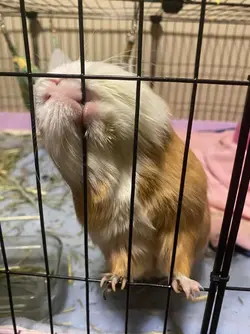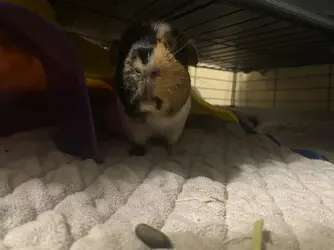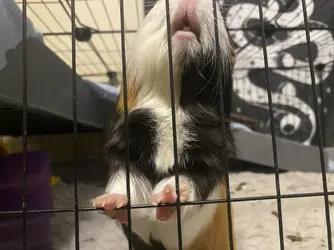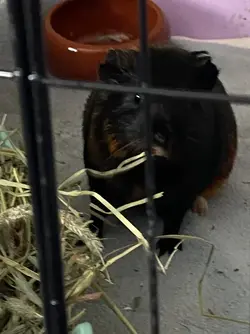Hi and welcome
4-5 years is the time when adult guinea pigs gradually move from being adult to becoming a bit more elderly in their appearance. Most well cared for healthy guinea pigs live to 5-7 years unless there are medical or genetic issues that are out of your control. Some can live even longer; I have had several 8 year olds and a couple living even longer - even though they were all adopted piggies, some from a truly horrible background.
Here is our information pack for looking after older citizens but you will hopefully not need it for another year or two; just so you know that there is some very practical and detailed care information out there:
Caring for Older Piggies and Facing the End - A practical and supportive information collection
Crucial for long term health and a long natural life span is your diet. Over three quarters of the daily food intake should be hay with a modicum of mainly green veg and just 1 tablespoon of pellets per piggy per day. Keep in mind that veg and pellets together only replace the supplementary role that wild forage used to play whereas the dental and the whole digestive system are fully laid out for the processing of the tough, silica rich but also very nutritious hay/grass fibre. In my own experience, a good diet can make a difference of 1-2 years and take your piggies from the lower end to the upper end or even beyond the average life span. It is never too late to make any dietary changes.
Long Term Balanced General And Special Needs Guinea Pig Diets
We recommend to do a life long once weekly body check and weigh-in on your kitchen scales so you can discover slowly developing health issues early on and see a vet sooner when there is a better chance for a good recovery and a longer life span due to better care with chronic health issues, which are more common in older piggies. The fast developing issues that happen out of the blue you can sadly never prevent and have to deal with as they happen. Please don't fall into the trap of checking daily; the more often you check, the more the weight will jump around and stoke up your anxiety but not contribute anything unless you are actually dealing with acute illness. If you have certain concerns about slow changes in the body, then I would recommend to take a picture so you have a comparison. If you suffer high anxiety, it would be great if you could delegate this job to somebody you trust so you have the necessary feedback but can't fall into the trap of overcontrolling and spoiling all the good that your piggies bring you by constantly worrying about there health. We are here to support you if there are real health concerns.
Here are our health monitoring guides, which you may find helpful:
Weight - Monitoring and Management
Guinea pig body quirks - What is normal and what not?
Early Signs Of Illness
Signs of Pain in Guinea Pigs
You can find all the links in this thread that contain all the detailed how-to advice and in-depth information that we cannot type out in full length each time laid out in order via our guide collection. You may want to bookmark the link but you can also find the access to our extensive practical information resource when you expand the top bar:
Comprehensive Owners' Practical and Supportive Information Collection
PS: Since your piggies are still going strong, it very much sounds like they are getting the good care they need to hang around for a goodly while longer. Sadly, far too many piggies are being sold without any concerns as to what conditions and care they are going to receive. So please take a deep breath; try to optimise what you can improve but rest assured that you are very much a good and caring owner; and that is the main thing!




